Image courtesy of the Recording Academy
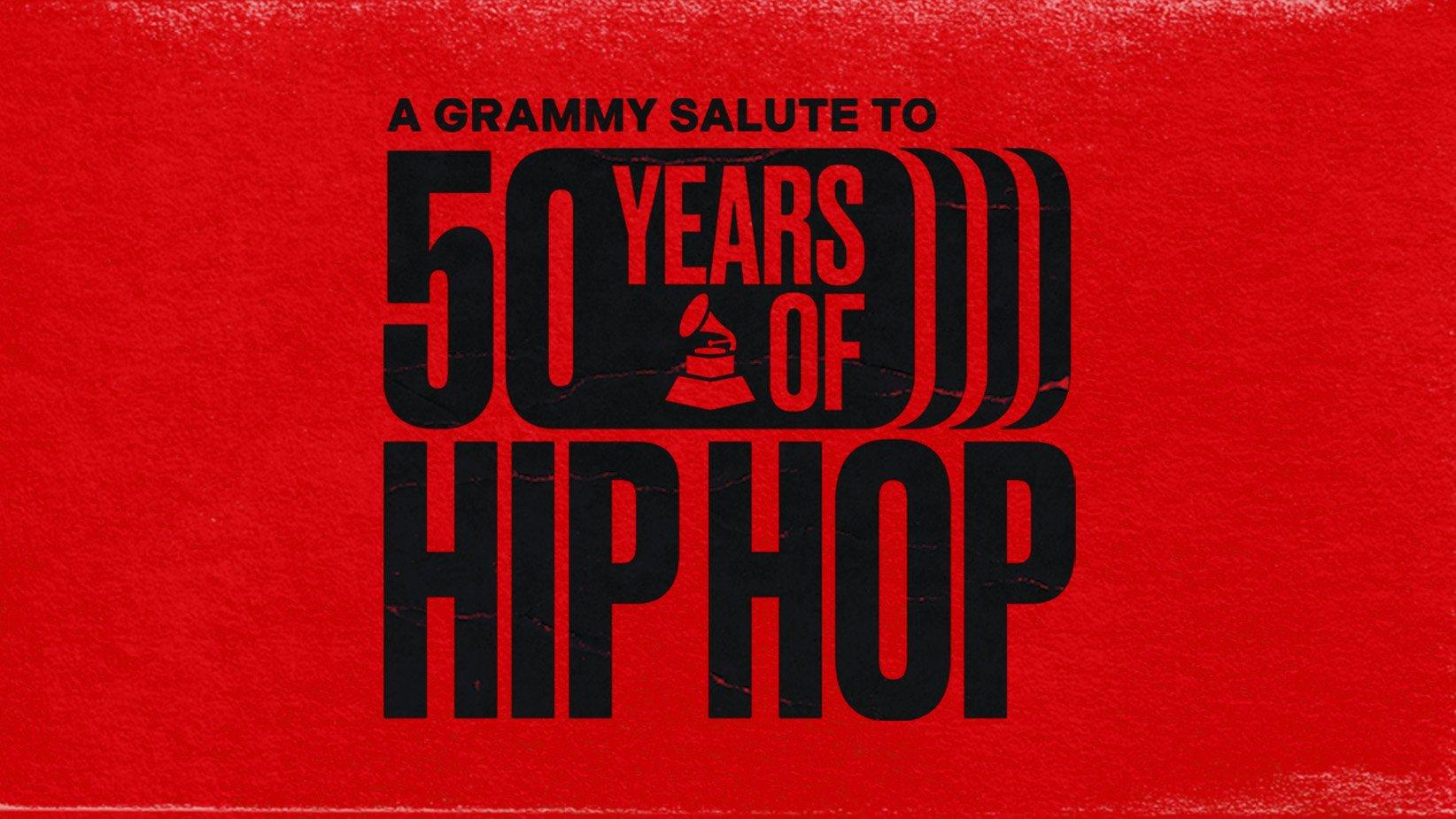
news
The Recording Academy And CBS Announce “A GRAMMY Salute To 50 Years Of Hip-Hop” Live Concert Special Featuring Performances By Common, LL COOL J, Queen Latifah, Questlove, De La Soul, Remy Ma & More; Airing Dec. 10
The star-studded tribute will take place Wednesday, Nov. 8, at YouTube Theater at Hollywood Park in Inglewood, California. Tickets are on sale now; the live concert special will air on Sunday, Dec. 10, on CBS and Paramount+.
This article was updated Sunday, Dec. 10, to add the full performer lineup.
The Recording Academy, Jesse Collins Entertainment and CBS have announced “A GRAMMY Salute to 50 Years of Hip-Hop,” a once-in-a-lifetime live concert special celebrating the 50th anniversary of hip-hop. Airing Sunday, Dec. 10, at at 8:30 p.m. ET/8 p.m. PT on the CBS Television Network and streaming live and on demand on Paramount+, the two-hour tribute special will feature exclusive performances from hip-hop legends and GRAMMY-winning artists including Black Thought, Bun B, Common, De La Soul, Jermaine Dupri, J.J. Fad, Talib Kweli, The Lady Of Rage, LL COOL J, MC Sha-Rock, Monie Love, The Pharcyde, Queen Latifah, Questlove, Rakim, Remy Ma, Uncle Luke, and Yo-Yo. Newly announced performers include rap icons and next-gen hip-hop superstars 2 Chainz, T.I., Gunna, Too $hort, Latto, E-40, Big Daddy Kane, GloRilla, Juvenile, Three 6 Mafia, Cypress Hill, Jeezy, DJ Quik, MC Lyte, Roxanne Shanté, Warren G, YG, Digable Planets, Arrested Development, Spinderella, Black Sheep, and Luniz. See the full performer lineup.
The “A GRAMMY Salute To 50 Years Of Hip-Hop” live concert will take place on Wednesday, Nov. 8, at YouTube Theater at Hollywood Park in Inglewood, California. The concert will then air on Sunday, Dec. 10, at 8:30 p.m. ET/8 p.m. PT, as a live concert TV special celebrating the profound history and monumental cultural impact that hip-hop has made around the world.
The “A GRAMMY Salute To 50 Years Of Hip-Hop” live concert is open to the public. Tickets are on sale now.
Explore More Of "A GRAMMY Salute to 50 Years of Hip-Hop"
6 Highlights From "A GRAMMY Salute To 50 Years Of Hip-Hop": Performances From DJ Jazzy Jeff & The Fresh Prince, Queen Latifah, Common & More
Here’s All The Performers And Songs Featured At "A GRAMMY Salute To 50 Years Of Hip-Hop"
Watch Backstage Interviews From "A GRAMMY Salute To 50 Years Of Hip-Hop" Featuring LL Cool J, Questlove, Warren G & E-40, And Many More
How DJ Jazzy Jeff & The Fresh Prince Created The Ultimate Prototype For The Producer/Rapper Duo
For Questlove, "A GRAMMY Salute To 50 Years Of Hip-Hop" Is Crucial For Rap's Legacy
How Lin-Manuel Miranda Bridged The Worlds Of Broadway & Hip-Hop
How To Watch "A GRAMMY Salute To 50 Years Of Hip-Hop": Air Date, Performers Lineup, Streaming Channel & More
Full Performer Lineup For "A GRAMMY Salute To 50 Years Of Hip-Hop" Announced: Roddy Ricch, Chance The Rapper, Nelly, Coi LeRay, Akon, Mustard & More Artists Added
DJ Jazzy Jeff And The Fresh Prince To Reunite Onstage At "A GRAMMY Salute To 50 Years Of Hip-Hop"

"A GRAMMY Salute To 50 Years Of Hip-Hop" Airs Sunday, Dec. 10: Save The Date
Full concert details are below:
Concert:
Wednesday, Nov. 8, 2023 (tonight)
Doors: 6 p.m. PT
Concert: 7 p.m. PT
Venue:
YouTube Theater
1011 Stadium Dr.
Inglewood, CA 90305
Full List Of Confirmed Performers For "A GRAMMY Salute To 50 Years Of Hip-Hop":
Battlecat
Black Sheep
Blaqbonez
DJ Diamond Kuts
DJ Greg Street
DJ Jazzy Jeff and the Fresh Prince
DJ Trauma
^Names in bold indicate newly added artists.
Stay tuned to GRAMMY.com for more news and updates about "A GRAMMY Salute to 50 Years of Hip-Hop."
A GRAMMY Salute to 50 Years of Hip-Hop is produced by Jesse Collins Entertainment. Jesse Collins, Shawn Gee, Dionne Harmon, Claudine Joseph, LL COOL J, Fatima Robinson, Jeannae Rouzan-Clay, and Ahmir "Questlove" Thompson for Two One Five Entertainment serve as executive producers and Marcelo Gama as director of the special.
Hip-Hop Just Rang In 50 Years As A Genre. What Will Its Next 50 Years Look Like?
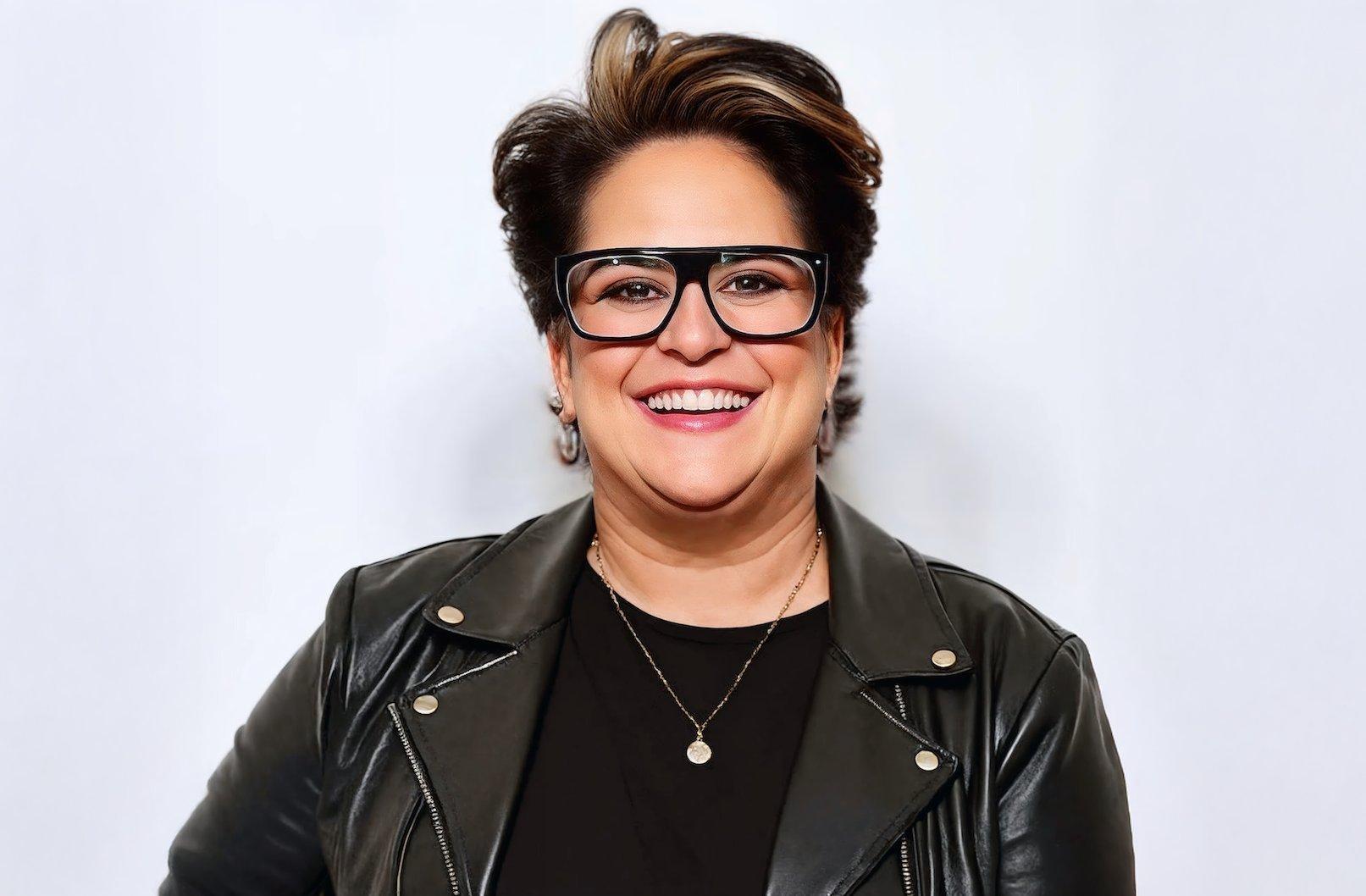
Photo: Genevieve LeDoux
interview
Tammy Hurt On Uplifting Women, Celebrating Diverse Voices & Helping The Recording Academy Move In The "Right Direction"
For the past four years, Tammy Hurt has helped foster remarkable change as Chair of the Board for the Recording Academy. In celebration of her tenure and Billboard Women In Music honor, Hurt reflects on her achievements and hopes for the Academy's future.
Nearing the end of her second two-year term as Chair of the Board, Tammy Hurt is still working endlessly to shape a brighter future for the Recording Academy. "I'm proud of where we've come and I look forward to seeing where we're going," Hurt says. "I love being part of the change and I love never having to take my foot off the gas."
Hurt has contributed to the betterment of the music industry for far longer than those four years. In addition to her storied career as a drummer and a long tenure with the Academy's Atlanta Chapter, Hurt founded two organizations: boutique entertainment firm Placement Music and nonprofit organization Georgia Music Partners, an advocacy organization aimed at supporting the Peach State's industry and culture.
But Hurt has truly shined during her time in leadership with the Academy, first as Vice Chair and then four years as Chair of the Board of Trustees. In that time, her efforts advocating for better representation for people of color, women and LGBTQIA+ individuals has helped reshape the membership to be far more representative of the contemporary music industry. Hurt's leadership helped the Recording Academy achieve its goal of adding 2,500 women Voting Members by 2025 — in fact, adding 3,000 by the year prior. In another astounding transition, the voting body saw an increase of 65 percent in Voting Members identifying as people of color.
Hurt's tenure also saw the launch of programs such as the Gold Music Alliance, which honors the contributions of the Pan-Asian community to the music industry; Academy Proud, which, in partnership with GLAAD and OUTLOUD, celebrates LGBTQIA+ music professionals; the RAA+D Network, which supports community members with disabilities and drives accessibility; and the Indigenous Peoples Network, dedicated to honoring and preserving the contributions of Indigenous members of the music industry.
But ever the diplomatic leader, Hurt consistently cedes credit for her successful tenure to both her collaborators in leadership and the membership base as a whole. "There's a mindset and a spirit of change, both through Harvey and myself, but also we don't do this by ourselves," she says, referring to Recording Academy CEO Harvey Mason jr. "Being able to bring in more perspectives helps make the Academy better."
That commitment has earned Hurt many deserved accolades, including most recently being honored as part of Billboard's Women In Music. As her time as Chair comes to a close, Hurt discussed her powerful accomplishments, the work that can still be done to advance the Academy, her advice for the yet-to-be-elected incoming Chair, and her plans for the future.
When you were elected to succeed Harvey Mason jr., it was the first time that neither of two consecutive chairs were white men. That's incredible, and the Academy truly looks different than it did four years ago.
One thousand percent. Also, I'm only the third woman in 67 years. That's a staggering number, but we're moving in the right direction.
Absolutely. The work's not complete, but your resume and the things you've managed to achieve in your four years are so meaningful. I can't imagine it's very easy just to have an idea and then make it reality.
It is definitely an exercise in consensus building. But folks are very like-minded, though. We've been acting with intention for quite some time.
I have personally been very active in the National Membership Committee. Before we had the new member model, the peer-driven member model, we worked on it for several years before 2019.
Change takes time. But with the right team, the right mindset, and the right intention, we've made some remarkable progress. But like you said, the work is never done.
Being able to even see some of the fruits of your labor must be a wonderful feeling. In so many organizations, people get into leadership positions, want to make change, and then need to move on before that happens. You've actually been able to champion new things and then see them happen.
You're correct. It has taken some time. You have new members of the board. You have new members. I would say there's a mindset and a spirit of change, both through Harvey and myself, but also we don't do this by ourselves. This is a member-driven organization, and 66 percent of our members are new.
We talk about diversity. And a lot of it, too, is diversity of thought and being able to bring in more perspectives helps make the Academy better.
Having a bloc of the same type of person won't make that diversification happen. And beyond the numbers, the changes in both the organization and the awards demonstrate the commitment.
Well, thank you for saying that. And I will tell you, it takes a village. It takes the whole village. It takes a partnership between the members and the leadership, the management.
There's been a similar mindset of, basically, "Don't take your foot off the gas, let's make these changes and let's make them now." It's been a really terrific partnership between the elected leaders and management.
We have some key champions internally — in addition to Harvey, our membership folks, our awards folks. It was our responsibility to build the membership that reflects the current culture and the current music industry. The visibility and the representation and the equity, of course, you need that balance. But at the same time, this is the music industry, and just by its nature between the different genres and geographic locations, we have a lot to include. And we have been very intentional about holding ourselves accountable.
And especially because you're facing that membership base, you have to take accountability personally as well. With that in mind, what were the things you felt most strongly about upholding when you entered as Chair, the things that were working best?
I had a big focus on membership, and I think membership was working right. This is going back a while, but change from the way we used to do things and the change to the peer-driven [approach], there was always an appetite to change. That's what was right.
There was always an openness — and again, it's by the virtue and the nature of the organization as a member-led organization. Some of our best folks on the management team were once elected leaders. Harvey himself was a Trustee. Ruby Marchand was the Vice Chair of the Academy. What was working was the mindset that we needed to evolve, that we needed to continue to be representative of the organization.
Beyond that evolving spirit, what was it about the mission of the Academy that continued to inspire you over the last four years?
Well, I'll go back to the beginning. The reason that I got involved in the Recording Academy in the first place was because I wanted to see some things change. [Laughs.]
There was a memory that popped up on one of my social media channels where I was playing drums at a GRAMMY In The Schools event. That was my first ever event that I participated in as a Recording Academy member. The other thing that I will tell you that has been right and has been remarkable — and it was my forever hook at the Academy — was advocacy. I was invited around the same time to attend Grammys On The Hill. I was able to attend as a part of the Academy and really realized how impactful you can be with music. Because music is universal. It's bipartisan.
The Advocacy department works all year long to build relationships with our legislators. That one day a year, GRAMMYs On The Hill — and now we have Grammys In My District, the local programs — to be able to build those relationships with those legislators and then to be able to walk in as a music creator and tell the story of why something is important to me and to my community.
The legislators don't know about the music industry. And you can see the wheels turning as you're talking. You really understand that you're speaking with influential lawmakers who could potentially make decisions to make your music community better. And that was so powerful. And that's something that the Academy has been doing right for a really long time.
Advocating for music creators' rights, not just at the federal level, but at the state and the local level, is really such an incredible component of the Recording Academy. There's, of course, music education, advocacy, excellence, and serving. Let's say there's a member who joins the Academy and they want to get more involved. It's a way for people to be able to find a place of service in the organization, because everyone knows about the GRAMMYs for one night a year. The work of the Board is really the other 364 days.
It's about service. It's about serving the music community. And serving the music community means many, many different things. And for me, one of the things that I'm most proud of is the ability to uplift women into these leadership positions. To support women, to encourage women, to encourage all of our members, but to get that visibility and that representation and that equity. Fifty percent of our board is women. And we're seeing that in our Chapters as well.
Read More: State-Level Advocacy In 2025: How The Recording Academy Is Championing Music Creators Nationwide
If you have that visibility in place also committed to advocacy, it must just be a self-generating source of positive change.
Diverse groups of people make better decisions. And that's diversity of thought, diversity of age, all kinds of diversity.
You've been able to be so vocal with issues like women's safety in the music industry. Having important conversations about issues of workplace safety are much easier if you've got 50 percent of the conversation being women, as opposed to lone voices.
Absolutely. First of all, you have to get your own house in order. You can't be talking about changing the world before you make sure you've got a good, solid foundation. We started this to develop a roadmap. And the roadmap is to go out into the music community and talk about fostering a more inclusive and respectful and safe environment for everyone in the industry.
So for the Academy to be the convener — because there are women's groups that are doing really great work right now, and it is, again, amplifying their work and being able to aggregate resources. And safety in music means many things. It means safe from harassment. It means psychologically safe. It means being safe and being able to speak up in these environments. And I'm really excited to continue the work. It's very, very meaningful to me personally.
It's in offices and legal departments and accounting departments. We are all one community, and the safer the environment, the more people can thrive in what they do, whatever their craft is or whatever their profession is. That's actually how you make things better.
What are you excited about for the next person who takes over from you from this point? I know you've got a few more months left, but what's the most exciting thing for you to hand over?
Building off of this foundation that we've worked so hard to build over the last several years, it really is a launching pad for the vision of the next Chair, the next Board. There's still work to do in these areas.
I think we continue to evolve the GRAMMY Awards process. I'm very, very excited about what's to come with the new partner that the Recording Academy will have to tell the stories, with Disney. We have a big show right now, but there may be opportunities to tell the stories of the five nominees in the Best African Performance Category, or Best Pop Dance Recording.
We have a Premiere Ceremony that happens right before the GRAMMY Awards where we present 75 awards — and, you know, you're talking about almost 1,000 nominees. Our show is the confluence of art and commerce. We have to put big names on the show, but man, that GRAMMY Premiere Ceremony, it's a treasure trove of stories to celebrate. It's an exciting time for the Recording Academy and this change. And I look forward to the Academy telling its story and the work that it does year-round.
What advice do you have for the person that will be taking this seat next?
In any instance, for a person who serves, it's truly an honor to serve at this level for this organization and the music community. We all still need to be encouraged. We all still need to be supported. Being in the music industry is hard. And to be able to shine a light or uplift those within the organization and within the community, that's our job.
From my perspective, the number one service that we provide to the music community is to be able to encourage people to be 100 percent authentically themselves, and to empower people to do great work. It's not just about the Chair. We have a number of national committees that will be repopulated with new diverse people, diversity of thought. There'll be new things to talk about.
You know, the last four years we've come through some pretty rocky waters. And the future is bright. There will be new conversations to have. There will be new Categories to contemplate. And there will still be a whole lot of work to be done. And for me, I'll be there to advise and be a backstop whenever I'm needed.
Read More: How The 2025 GRAMMYs Signaled A Bright Future For The Recording Academy
What about you? What's next for you, personally?
More music, more music, more music. [Laughs.] I have a project called Sonic Rebel. I have, of course, my Recording Academy duties. I have two companies. And usually my music, my performances get sort of pushed to the bottom of the list. So I'm looking forward to releasing the next mixtape. I'm looking forward to the next series of shows. I'm looking forward to being able to get back to my roots.
And as you said, you'll be on hand to advise if you're needed. It's also wonderful that it's such an ongoing relationship.
It is. I am always proud to serve. This gig is a limited-time engagement and you've got to make every minute count. Looking back at when I was becoming Vice Chair and both times when I was running for Chair — one of my mantras is, "Do what you say you're going to do." And I have done what I said I was going to do.
I'm proud of the service, but like I said, the work is ongoing. I love being part of the change, and I love never having to take my foot off the gas.
Latest Recording Academy News & Initiatives
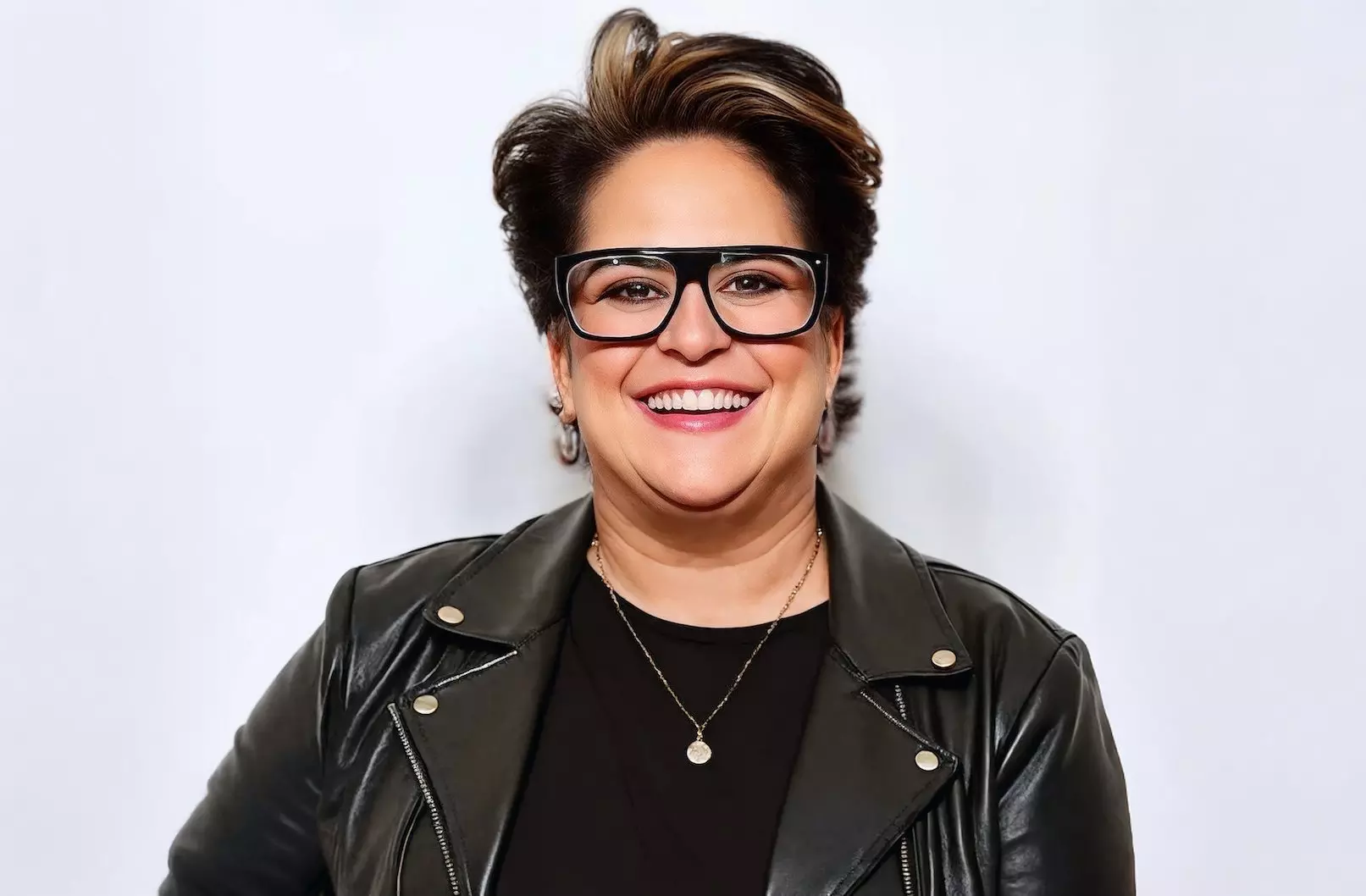
Tammy Hurt On Uplifting Women, Celebrating Diverse Voices & Helping The Recording Academy Move In The "Right Direction"

How The GRAMMY Museum Is Expanding Its Mission In 2025
.webp)
New Field & Two Categories Added For The 2025 Latin GRAMMYs: Best Music For Visual Media & Best Roots Song
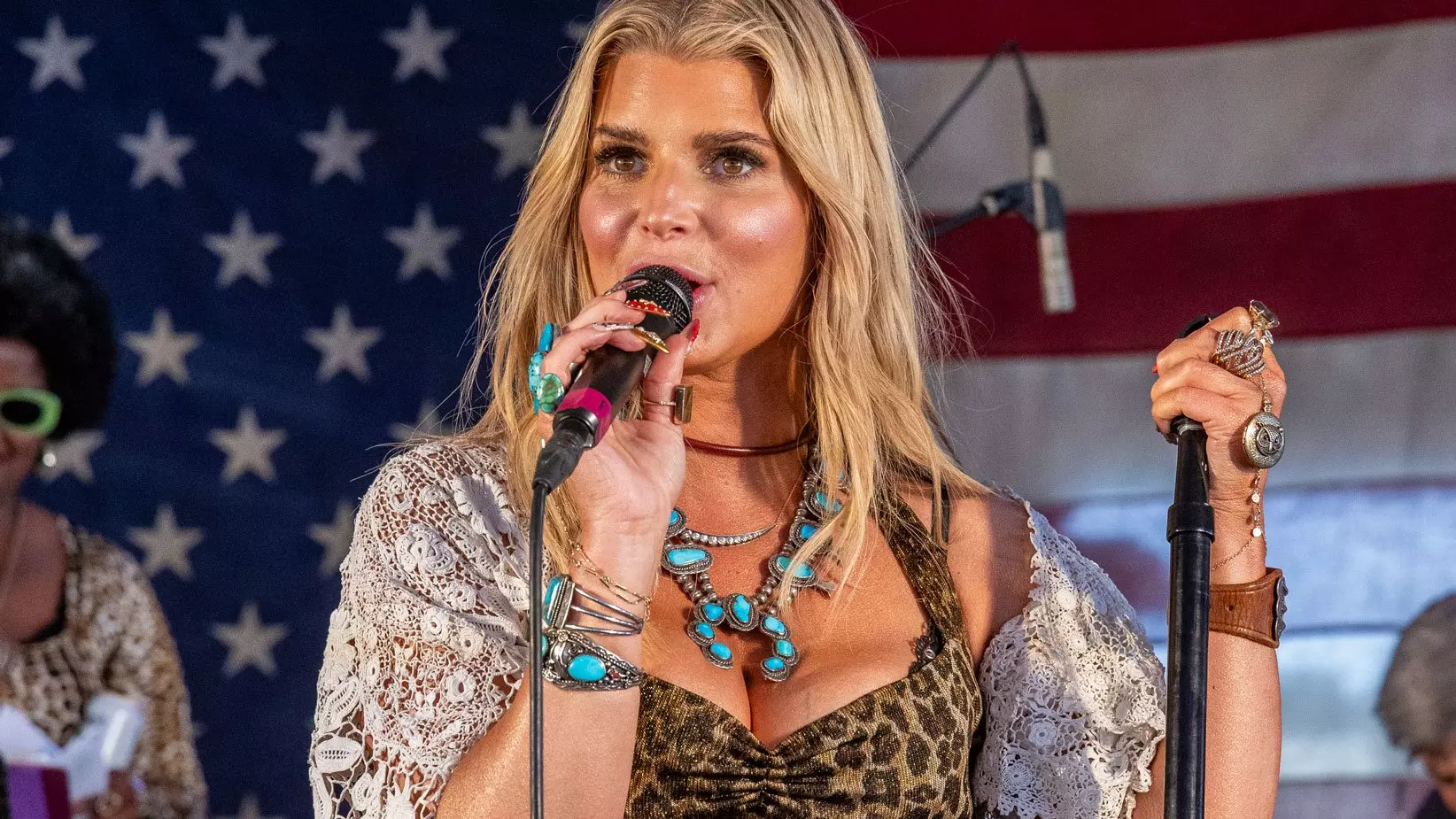
Jessica Simpson, Edgar Alejandro & GALE Share Advice At SXSW 2025 With GRAMMY U
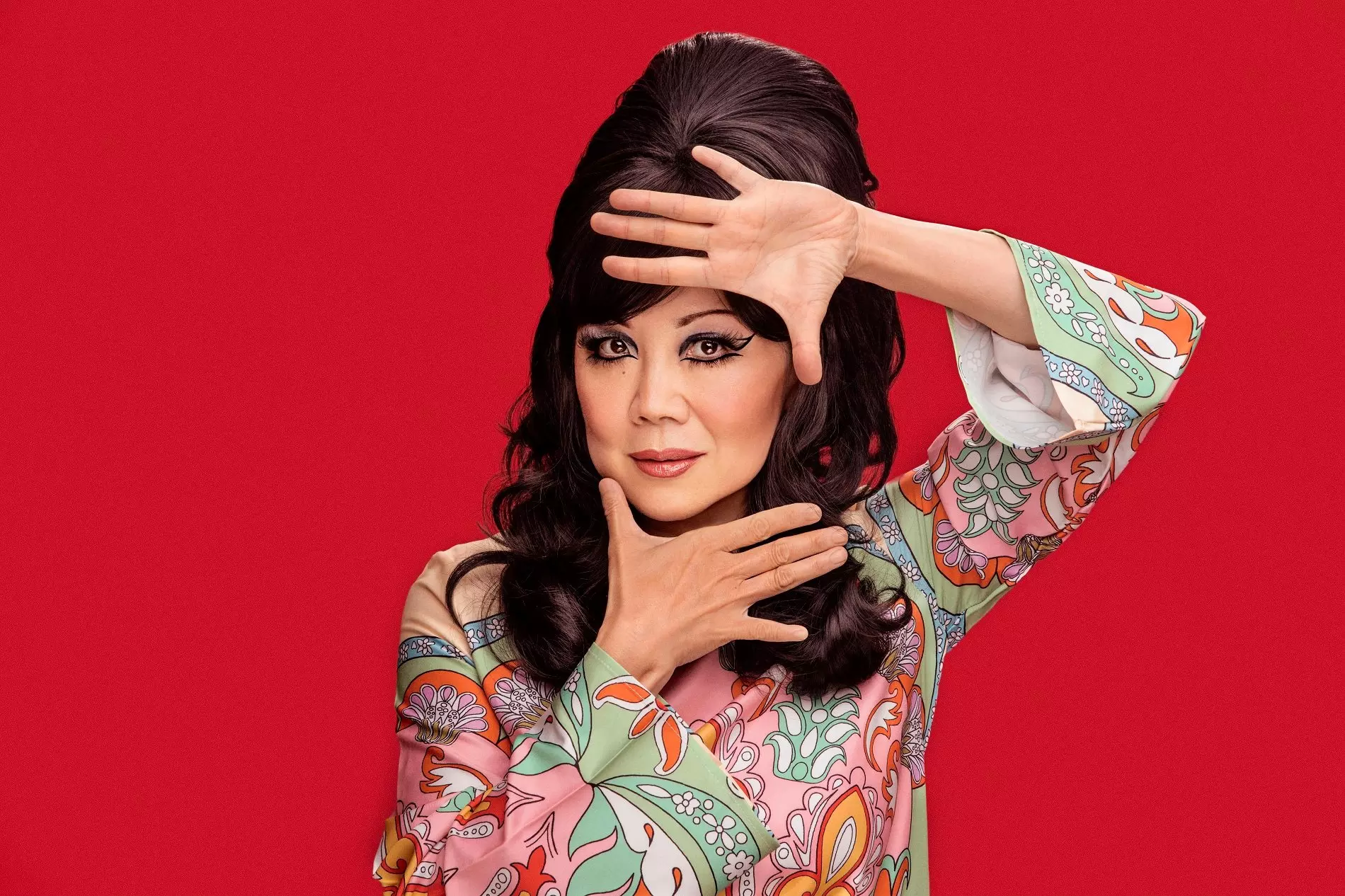
Margaret Cho's Musical Gift: The Comedian's On Her New Album Of Vulnerable, '90s-Inspired Songs

list
Recording Academy Celebrates 2025 Women's History Month With Key Events & Programming
From exclusive artist conversations to mentorship mixers and advocacy initiatives, the Recording Academy honors Women’s History Month with a slate of programming that amplifies women’s voices and contributions in music.
The Recording Academy has made meaningful progress in increasing women’s representation across its membership and broader industry initiatives. Yet there is still more work to be done. This Women’s History Month, we celebrate the trailblazers who have paved the way while advocating for greater opportunities, inclusivity, and safer work environments for women in music.
Through a month-long series of events, discussions, and advocacy efforts, the Academy is amplifying the voices of women who continue to push boundaries, redefine genres, and create lasting change. From A New York Evening With conversations featuring Japanese Breakfast, Anoushka Shankar and Nubya Garcia to a special Women In The Mix event at SXSW, these programs showcase the resilience, artistry and impact of women in music.
The Academy is also expanding its Women’s Safety in Music resource page to further support industry-wide efforts toward equity and protection for women in creative spaces. Other initiatives, including nationwide events and MusiCares Women’s Support Groups, reinforce the Academy’s commitment to fostering a more inclusive and supportive music community.
When there are more women in music, there is more music. Join us in celebrating and uplifting the voices that shape the industry today.
Women’s Safety in Music Resource Page
The Recording Academy is committed to fostering a safer and more inclusive environment for women and all individuals in the music industry. As part of this ongoing effort, the Women’s Safety in Music Resource Page offers tangible tools, guidance, and support networks to help navigate challenges ranging from workplace safety to mental health.
In collaboration with Women In The Mix, DEI partners, and industry stakeholders — including studio owners, major labels, publishers, and streaming platforms — the Academy is building a roadmap for lasting industry-wide improvements. The resource page serves as a growing hub for critical safety information, including: Safe Spaces & Industry Guidelines, Sexual Harassment & Workplace Safety, Live Music & Freelancing Resources, and Mental Health & Wellness Support.
The Women’s Safety in Music Resource Page was first introduced during GRAMMY Week and will continue to evolve as the Academy collaborates with advocacy groups and industry leaders. By equipping artists, professionals, and creatives with essential tools, the Academy reaffirms its commitment to ensuring that women in music can thrive in safer, more supportive environments.
MusiCares Women’s Support Group
Weekly, Every Thursday
Time: 10 - 11a.m. PT / 12 – 1p.m. CT / 1 - 2p.m. ET
Virtual
MusiCares offers ten free weekly online emotional support and addiction recovery support groups, including the Women’s Support Group. Support groups are a safe and secure place to sort through a variety of wellness issues or concerns. Each group is led by a licensed professional and additional assistance is available if needed.
Danielle Bowker is a Licensed Professional Counselor in Tennessee with a private practice in the Nashville area. She is able to offer a unique perspective having grown up as a child in and around the music industry and as the wife of a touring Weekend Warrior. Bowker also has over 10 years of experience working directly with music professionals. She is a certified EMDR clinician and specializes in trauma-informed care for those in the industry. Email Danielle Bowker, LPC/MHSP to sign up at danielle@dbcounseling.com.
The Drop: ZZ Ward
March 6, 2025 from 7:30 to 9 p.m.
L.A.
The GRAMMY Museum is thrilled to welcome ZZ Ward to the Museum’s Clive Davis Theater for a unique storytelling-focused experience discussing her upcoming album, her creative process, and more, with a special performance to follow.
ZZ's latest album, Liberation, marks her most authentic and blues-infused work yet, inspired by the life-changing experience of motherhood. Free from major-label pressures, the L.A.-based singer-songwriter fully embraces her blues roots on her Sun Records debut, blending Chicago blues, Delta blues, garage rock, and vintage soul, with production by Ryan Spraker.
Women In The Mix
March 9, 2025
Austin, TX - SXSW
Held during SXSW 2025, the Recording Academy’s Texas Chapter, in partnership with the Producers & Engineers Wing (P&E Wing), presents Women In The Mix. The private event will feature special guest Trina Shoemaker, a multi-GRAMMY Award winner, including her win for Best Engineered Album, Non-Classical for Sheryl Crow’s The Globe Sessions — the first woman to ever receive this award.
Her career has delivered audiences outstanding records from artists including Tanya Tucker, Queens of the Stone Age, Indigo Girls, Pearl Jam, Shakira, Blues Traveler, Charley Crockett, Turnpike Troubadours, Brandi Carlile, and many more. Members of the Texas Chapter are invited to this up close & personal conversation about her admirable work in engineering records loved around the world, spanning decades and across multiple genres.
LA Chapter Presents “Scene and Heard” in Collaboration with the Alliance of Women Film Composers
March 12, 2025 from 5 to 8 p.m.
L.A. / Virtual
The Recording Academy's Songwriters & Composers Wing and Alliance for Women Film Composers will celebrate the art of TV, film and video game composition through panel discussions with esteemed female composers at the Recording Academy offices in Santa Monica. Members will gain valuable insights into their creative processes, challenges, and collaborations and have an opportunity to network with other attendees. Open to Recording Academy S&C Wing members and AWFC members only.
A New York Evening With Japanese Breakfast
March 19, 2025 from 7:30 to 9 p.m.
N.Y.C.
The GRAMMY Museum is thrilled to welcome Japanese Breakfast to National Sawdust in Brooklyn, NY to celebrate her new album and first proper studio release, For Melancholy Brunettes (& sad women). The evening will consist of a discussion about her creative process and a special live performance.
Japanese Breakfast is one of the many artists to be featured in the GRAMMY Museum’s New York City program series, which includes bringing a slate of the GRAMMY Museum’s renowned GRAMMY In The Schools Education Programs and Public Programs to the East Coast. "A New York Evening With…" is generously supported by the Dawn and Brian Hoesterey Family Foundation.
A New York Evening With Chloe Moriondo
March 25, 2025 from 8 to 9:30 p.m.
N.Y.C.
The GRAMMY Museum and 92NY are thrilled to host Chloe Moriondo for an intimate conversation moderated by PAPER Magazine’s Music Editor Erica Campbell about her new album, oyster, her creative process, and more, followed by a special performance.
Chloe Moriondo channels the ebb and flow of heartbreak on oyster, her deeply introspective new album out March 28 via Public Consumption/Fueled By Ramen. Featuring the contemplative "Shoreline" and the eerie "Hate It," the record showcases Moriondo’s evolving sound, crafted alongside a team of acclaimed producers as she navigates personal growth with raw emotion and fearless creativity.
A New York Evening With Anoushka Shankar
March 25, 2025 from 8 to 9:30 p.m.
GRAMMY Museum N.Y.C.
The GRAMMY Museum is thrilled to welcome 11-time GRAMMY-nominated artist Anoushka Shankar to National Sawdust in Brooklyn to have a discussion moderated by WNYC’s radio host and author John Schaefer about the creative process behind her latest album, Chapter III: We Return To Light, with a special live performance.
Rooted in ancestral echoes and modern Indian soundscapes, Chapter III: We Return to Light marks the radiant conclusion of Shankar’s ambitious trilogy — melding the rhythmic pulse of Goa Trance with classical traditions and rich improvisation to guide listeners on a journey of renewal and reflection.
Anoushka Shankar is one of the many artists to be featured in the GRAMMY Museum’s New York City program series. "A New York Evening With…" is generously supported by the Dawn and Brian Hoesterey Family Foundation.
A New York Evening With Nubya Garcia
March 27, 2025 from 7:30 to 9 p.m.
GRAMMY Museum N.Y.C.
The GRAMMY Museum is thrilled to welcome Nubya Garcia to National Sawdust in Brooklyn, New York to have a discussion about the creative process behind her album, Odyssey, with a special live performance.
Blending jazz, orchestral arrangements, R&B, broken beat and dub, Nubya Garcia’s Odyssey is a grand and deeply personal exploration of her rekindled love for composition. The Mercury Prize-nominated saxophonist and composer defies classification, crafting celestial yet groove-driven soundscapes that expand beyond genre.
Nubya Garcia is one of the many artists to be featured in the GRAMMY Museum’s New York City program series. "A New York Evening With…" is generously supported by the Dawn and Brian Hoesterey Family Foundation.
Women's History Month: Celebrate The Women Changing Music
Recording Academy Celebrates 2025 Women's History Month With Key Events & Programming
Listen To GRAMMY.com's Women's History Month 2025 Playlist: More Women, More Music
13 Times Women Made GRAMMY History: Beyoncé, Taylor Swift & More
5 Women-Led Organizations Diversifying The Music Industry: Femme House, Gender Amplified, Girls Rock Camp & More
9 Artists Who Have Stood Up For Women In Music: Taylor Swift, Lady Gaga & More
10 Ways To Support Women Musicians & Creators Year-Round
How Each Of Lady Gaga's Albums Led Her To 'MAYHEM'
Breaking Down Every Solo Act From BLACKPINK: From LISA's "Money" To JENNIE's 'Ruby'
7 Women Essential To R&B: Aretha Franklin, SZA, Mary J. Blige & More
10 K-Pop Songs That Celebrate Women's Strength & Authenticity
15 Female & Nonbinary Producers To Know: Alissia, WondaGurl, Calina & More
TOKiMONSTA On Grief & Good Music: How 'Eternal Reverie' Pays Homage To Everlasting Friendship
Lucy Dacus Is In Her Feelings: How 'Forever Is A Feeling' Was Born From Radical Honesty
On 'Tsunami Sea,' Spiritbox's Courtney LaPlante Contemplates Adversity, Solidarity & Renewal
Rebecca Black Doesn’t Need Your Redemption. Her 'Salvation' Comes From Emotional Honesty.
Margaret Cho's Musical Gift: The Comedian's On Her New Album Of Vulnerable, '90s-Inspired Songs
How Beyoncé Is Honoring Black Music History With 'Cowboy Carter,' "Texas Hold Em," 'Renaissance' & More
10 Women Artists Leading A Latin Pop Revolution: Kenia Os, Belinda & More
11 Women Pushing Amapiano To Global Heights: Uncle Waffles, Nkosazana Daughter, & More
5 Women Essential To Rap: Cardi B, Lil' Kim, MC Lyte, Sylvia Robinson & Tierra Whack
5 Women Essential To Electronic Music: TOKiMONSTA, Shygirl, Nina Kraviz & More
5 Women Essential To Country Music: Dolly Parton, Mickey Guyton, Jo Walker-Meador, The Love Junkies & Mother Maybelle Carter
The Women Essential To Reggae And Dancehall
15 K-Pop Soloists To Know: Chung Ha, Taeyeon, BIBI & More
5 Women Essential To Reggaeton: Ivy Queen, Natti Natasha, Karol G, Ms Nina & Mariah Angeliq
5 Women Essential To Punk: Exene Cervenka, Poly Styrene, Alice Bag, Kathleen Hanna & The Linda Lindas
5 Essential Women Synth Icons: From 'Tron' Composer Wendy Carlos To LCD Soundsystem's Nancy Whang
5 Female Artists Creating The Future Of Country Music: Jaime Wyatt, Miko Marks & More

How Taylor Swift Has Become One Of Music's Most Powerful Women | Run The World

How Shakira Became One Of The Most Influential Female Artists Of The 21st Century | Run The World
7 Organizations Supporting Women In Audio Production & Engineering: Women's Audio Mission, She Is The Music & More
8 Bands Keeping The Riot Grrrl Spirit Alive
Get Glitchy With These 7 Artists Essential To Hyperpop
The Evolution Of The Girl Group: How TLC, BLACKPINK, The Shirelles & More Have Elevated Female Expression
Love Anitta? Check Out These 6 Brazilian Female Artists Rising To Global Stardom
5 Songs To Get Into Japanese Breakfast: Tracks From 'For Melancholy Brunettes (& Sad Women),' 'Jubilee' & More
Run The World: How Rosalía Became An International Superstar And Production Powerhouse

How Dolly Parton's Advocacy & Generosity Made Her A Country And Culture Icon | Run The World
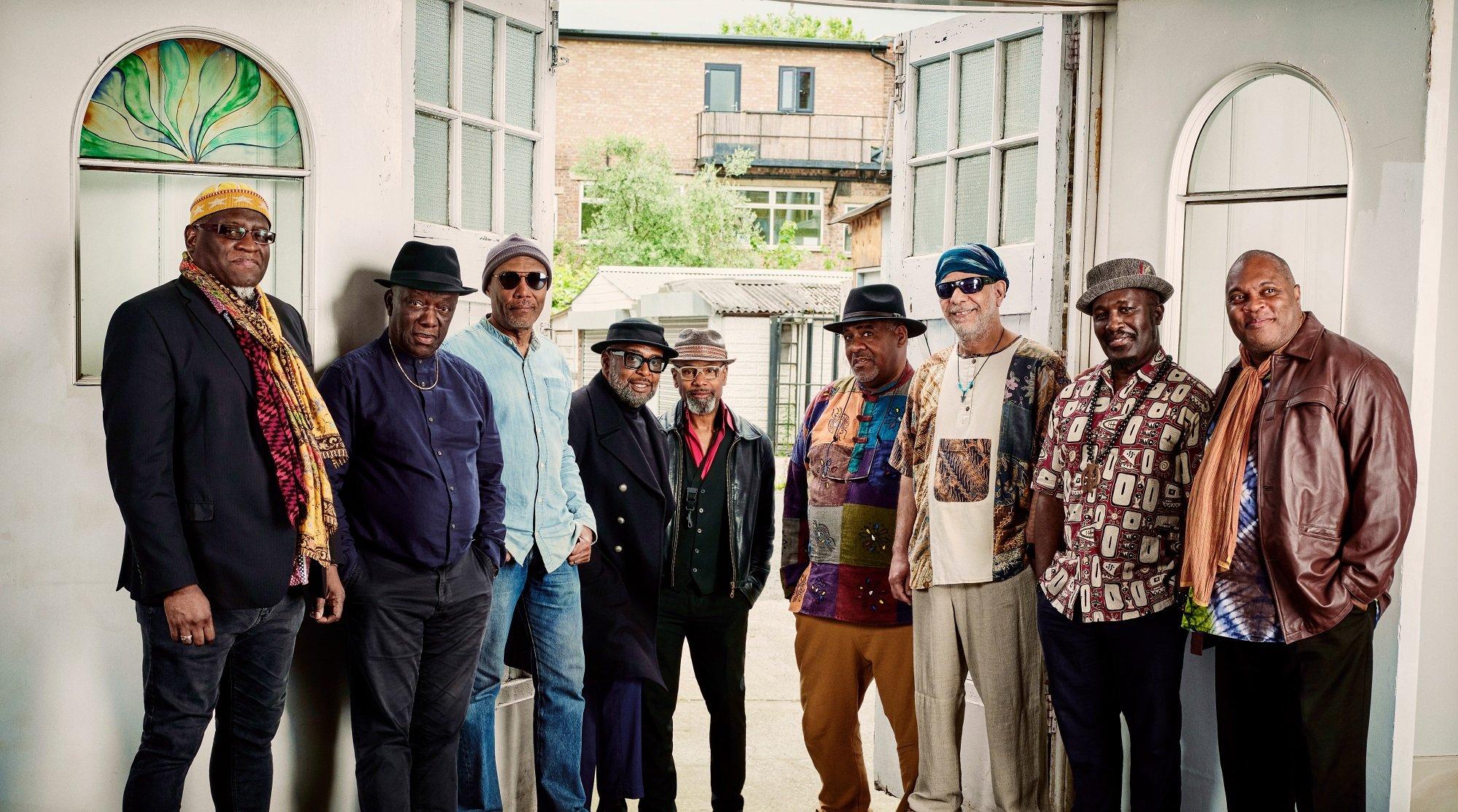
Photo: Dean Chalkley
list
5 Songs To Get Into Cymande, The British Funk Pioneers Behind Your Favorite Samples
Cymande’s latest record, 'RENASCENCE,' offers a fresh take on the politically-aware, infectious grooves that have defined their sound since forming in 1970. Ahead of the band’s U.S. headline tour, explore their pioneering music via five great tracks.
When Patrick Patterson and Steve Scipio formed Cymande in 1971 in South London, they had two main goals in mind: Make original music, and make music with a message.
The group didn’t have a specific approach or genre, but pulled musical and cultural inspiration from the African and Caribbean roots of their predominantly Black communities. They wrote lyrics about the racism they faced in late '60s, early 1970s London. The resulting music was funky, but not overly busy or rushed; its laid-back grooves and melodies are clear, distinct, and uplifting.
In their late teens, guitarist Patterson and bassist Scipio played in a jazz group called Metre, and also played with a Nigerian band who introduced them to polyrhythmic ideas. These key elements carried over into Cymande, pronounced "see-Mahn-dee," a word taken from the lyrics of a popular calypso song.
"Don’t ask me to play any covers, I can’t do covers," Patterson tells GRAMMY.com. "Right from the start, we wanted to write our own music, and make it unique."
Their decision to blend funk, soul, reggae, and jazz in unique ways quickly changed their lives in phenomenal ways. Over the course of just a few years, Cymande went from playing small basement clubs in London to touring the U.S. with Al Green, Kool & The Gang, Patty LaBelle, Billy Preston, Ramsey Lewis, and Mandrill.
"To be onstage with someone like Al Green was just fantastic. He was in a world of his own," Scipio says. "In the small UK clubs, we were lucky to play for a hundred people. In America the biggest audience we had was 20,000 people. Some of the guys in the band were scared. It was a very rapid ascent."
Cymande released three albums between 1972 and 1974, and their self-titled debut album reached the U.S. Billboard pop and R&B Charts. Their first single, "The Message" reached the Billboard Hot 100 and Hot R&B Charts. In 1972, the group became the first British band to perform at The Apollo Theatre in Harlem.
Coming back to the UK was a buzzkill for the band: they felt neglected and rejected by a British music industry that didn’t seem keen on nurturing all-Black bands. By the end of 1974 they went on hiatus, and Patterson and Scipio eventually both became practicing lawyers in the Caribbean. The group remained disbanded for decades.
In the ensuing years, Cymande has resurfaced in many different ways. British DJ Norman Jay introduced a new generation of listeners to Cymande by playing their records in the 1980s on London pirate radio. Early hip-hop DJs like Kool Herc sampled their music in the '80s. In the 1990s, Cymande was sampled by the likes of De La Soul, Wu-Tang Clan, Gangstarr, MC Solaar and the Fugees; Spike Lee used their music in two of his films. They’ve released a handful of studio albums and compilations, and have regrouped for a handful of live performances. A documentary on their history, Getting It Back: The Story of Cymande, was released in 2022.
In January, the band released RENASCENCE, their first album of new material in a decade. The album's 10 tracks have that same energy and style the band is known for, combined with the depth of a lifetime of experiences. Cymande is touring 10 U.S. cities in February and will perform this Spring and Fall in the UK. On Feb. 27, the GRAMMY Museum in Los Angeles will host a film screening of the band documentary, featuring a Q&A with Patterson and Scipio.
GRAMMY.com spoke with Patterson and Scipio about their lives in and out of Cymande, and selected the following songs that help illustrate the heart of their sound and style.
"Bra" (1972)
Arguably one of their most recognizable songs, "Bra" was named for a colloquial West Indian expression for brother, and the style of "Bra" and other songs written at that time were influenced by Miles Davis. The song originated with the bass line and rhythm, and the melody and the lyrics came later, according to Scipio.
Hip-hop group Gangstarr sampled "Bra" on their 1988 song "Movin’ On," and De La Soul sampled it a year later. Filmmaker Spike Lee included the song in 1994’s Crooklyn and 2002’s 25th Hour.
"Dove" (1972)
This moody, psychedelic groove is almost 11 minutes long, punctuated by jazzy flute improvisations and haunting vocals. Wu-Tang Clan sampled it on their 1991 song "Problems," and the Fugees and EPMD also sampled it later that same decade.
Scipio found out through his children that Cymande songs like "Dove" were being sampled in hip-hop. He and Patterson subsequently put their legal expertise to work to get their publishing rights back from the record labels, making sure they had full ownership of how their music was being used.
Beyond its highly sampled legacy, doves are central to Cymande: "Cymande" is a reference to a lyric from a calypso song called "Dove and Pigeon," and dove images appear on their album covers. "The dove represents peace and love and for us," Scipio told Rolling Stone in 2016.
"Brothers On The Slide" (1974)
This heavy groove — sampled by MF Doom in 2004 — maye have hints of Curtis Mayfield, but the standouts are all signature Cymande: clear, melodic bass line, hand percussion, poignant lyrics, and plenty of space for the song to breathe.
"Brothers On The Slide" is Cymande’s most popular song on Spotify, with nearly 50 million plays. The song appeared on their third album, Promised Heights, released in 1974. The lyrics seem to speak directly to young men who may be struggling with life’s hardships: "Working on the wrong side/What ya gonna do/You can't win so you know you must lose/We know which way you goin.'"
"Promised Heights was kind of a realization of getting to where we want to be," Scipio said in 2014. "The quality of the songs, the lyrics, are much deeper than what had gone before, and also the structure and arrangement of the songs was much more involved."
"Crawshay" (1973)
"Crawshay" is a bouncy yet somber groove from the band’s 1973 album Second Time Round. The song is essentially two long, bluesy verse-chorus arrangements divided by a laid-back piano solo that conveys a feeling of sweet melancholy.
The chorus is a proud declaration of freedom: "It makes no difference what you think of me/Once again I’m free."
Cymande began recording Second Time Round after their first U.S. tour. "In relation to the second album, we had a little more experience of not only writing but also of recording. We had a clearer vision of where our music should be going," Patterson said in 2014. "We had more language in terms of what we wanted to say. We had a wider vocabulary. Some of the songs on Second Time Around didn’t speak simply to our local or national experience but perhaps we had a better world perspective. I feel our songs on the second album were deeper, and certainly to me more meaningful."
"Coltrane" (2025)
Jazz has always been a through-line in Cymande’s music, and iconic artists like Miles Davis and John Coltrane were a huge influence since the group’s teenage years in South London in the '60s.
It was important to Patterson and Scipio that they keep the core, recognizable elements of Cymande — jazz, reggae, soul, calypso, funk — but also not try to recreate the past. They wanted to continue the message of their three main albums, but also show that they have moved on and developed as people and musicians.
"Coltrane is so important to Black music," Patterson says. "It's not just about music, it's about the Black experience. It’s so identifiable about Coltrane. And it’s been so important to our group as well, something that is forever. It’s a forever thing."
Latest News & Exclusive Videos

Alicia Keys Wins Best R&B Album At 2005 GRAMMYs

New Music Friday: Listen To Releases By Ariana Grande, Dua Lipa & Troye Sivan, Playboi Carti And More
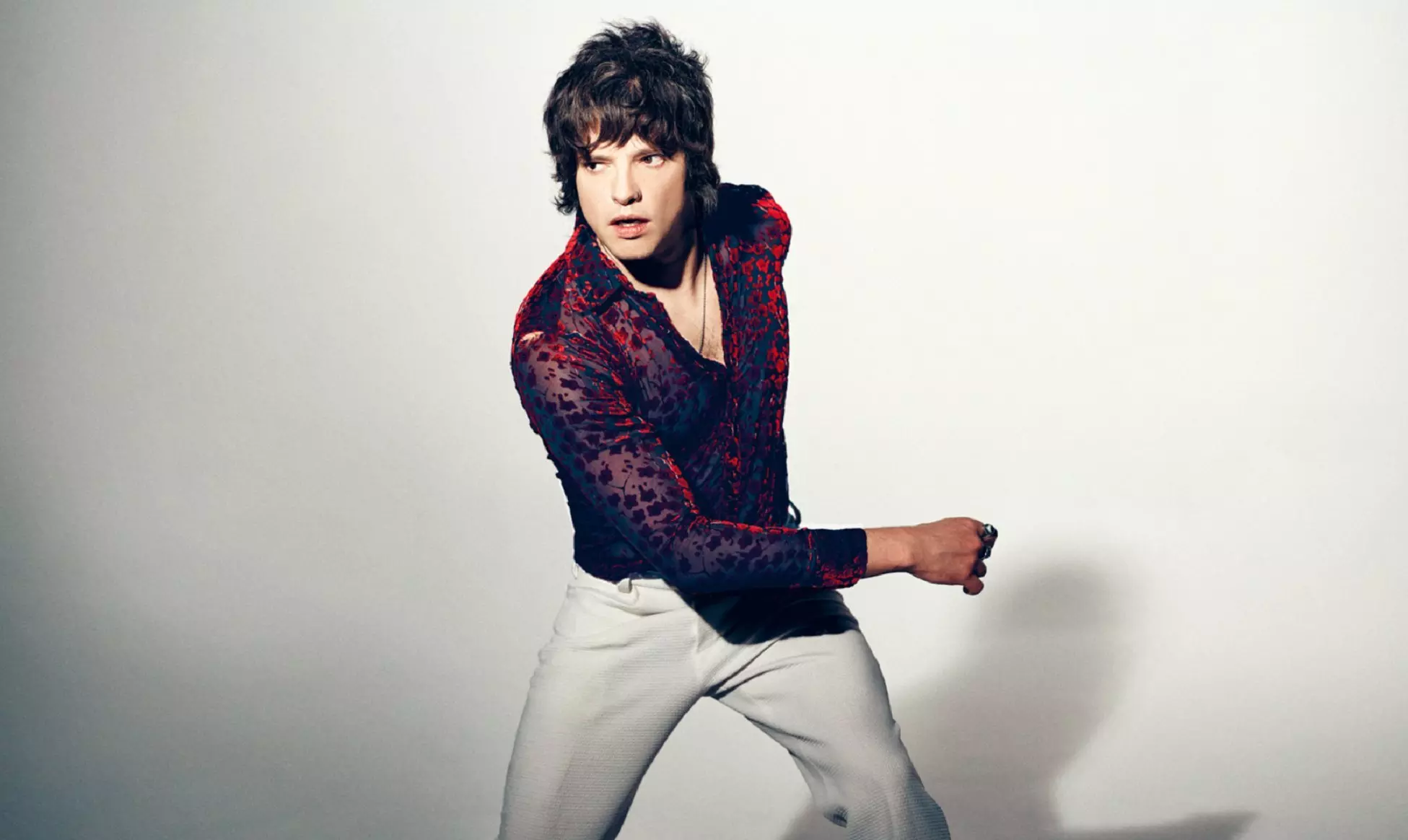
On 'Malcriado,' Venezuelan Artist Lasso Defies The Status Quo

Will Smith's 'Based On A True Story' Isn't A Return: 16 Ways He's Stayed Active In Music

COMA-CHI Fuses Tradition & Hip-Hop On "Iyasaka"
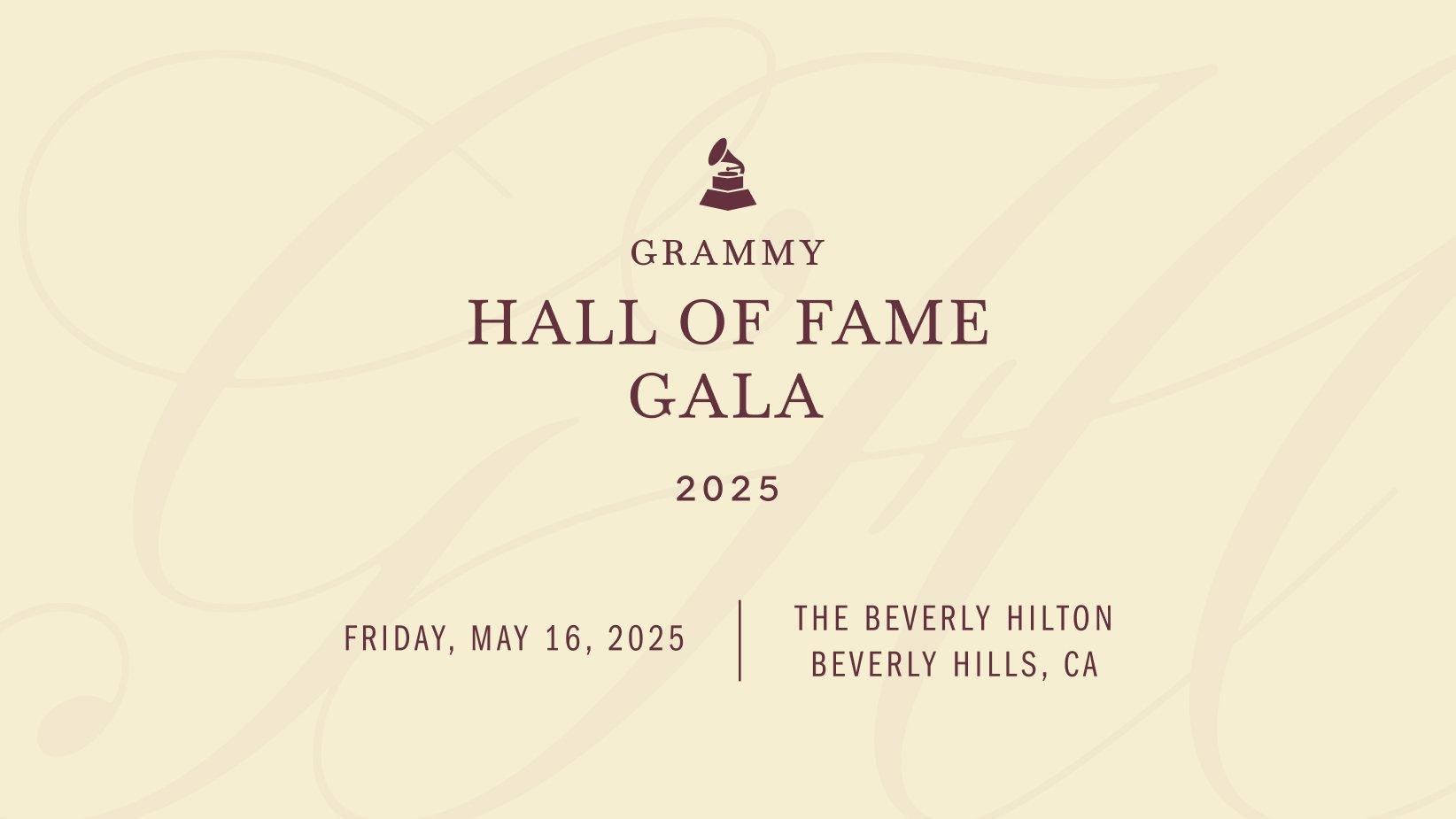
Graphic courtesy of the Recording Academy
news
2025 GRAMMY Hall Of Fame Inducted Recordings Announced: Jay-Z, Santana, Gloria Estefan, Cat Stevens, Emmylou Harris, Luther Vandross & More
Thirteen influential recordings will be added to the GRAMMY Hall Of Fame, honoring music’s legacy at the GRAMMY Museum and during a special gala on May 16.
The Recording Academy has unveiled the 2025 inductees to the esteemed GRAMMY Hall Of Fame, celebrating eight albums and five singles that have significantly shaped music history. To be eligible, recordings must hold qualitative or historical significance and be at least 25 years old.
This year’s honorees range from Jay-Z’s Reasonable Doubt and Cat Stevens’ Tea For The Tillerman to Santana’s Supernatural, as well as recordings by Big Star, Clara Ward, Eddie Floyd, Emmylou Harris, Fela Kuti & Afrika 70, Geeshie Wiley, Gloria Estefan & Miami Sound Machine, J.D. Crowe & The New South, Linda Martell, and Luther Vandross.
The inducted recordings will be celebrated at the GRAMMY Museum and Recording Academy’s GRAMMY Hall Of Fame Gala on May 16, 2025, at the Beverly Hilton in Beverly Hills, California. The event will also pay tribute to this year’s label honoree, Republic Records, with performances to be announced at a later date. Tables and seats are now available for purchase.
"It’s a privilege to recognize these eclectic recordings as the 2025 GRAMMY Hall Of Fame inductees," said Harvey Mason jr., CEO of the Recording Academy. “Music has the unique power to shape culture and mark moments in time. Each inducted recording reflects that spirit, and we’re excited to celebrate these impactful works, ensuring their legacies continue to inspire generations to come.”
Michael Sticka, President/CEO of the GRAMMY Museum, echoed this sentiment, adding, "The GRAMMY Hall Of Fame serves as a vital bridge between music’s past and present, honoring recordings that have left a lasting mark on our cultural landscape. We’re proud to preserve and share these influential works at the annual GRAMMY Hall Of Fame Gala this spring."
Eligible recipients will receive an official certificate from the Recording Academy. With these 13 new titles, the GRAMMY Hall Of Fame now comprises 1,165 inducted recordings, recognizing the influential works that have defined music history.
2025 GRAMMY Hall Of Fame Inducted Recordings
#1 Record — Big Star (Album)
"Color Him Father" — Linda Martell (Single)
"Conga" — Gloria Estefan & Miami Sound Machine (Single)
"How I Got Over" — Clara Ward (Single)
J.D. Crowe & The New South — J.D. Crowe & The New South (Album)
"Knock On Wood" — Eddie Floyd (Single)
"Last Kind Words Blues" — Geeshie Wiley (Single)
Never Too Much — Luther Vandross (Album)
Reasonable Doubt — JAY-Z (Album)
Supernatural — Santana (Album)
Tea For The Tillerman — Cat Stevens (Album)
Wrecking Ball — Emmylou Harris (Album)
Zombie — Fela Kuti & Afrika 70 (Album)
About The GRAMMY Hall Of Fame
Established in 1973 by the Recording Academy’s National Trustees, the GRAMMY Hall Of Fame preserves recordings that have made a lasting impact on music and culture. Inductees are selected annually by a dedicated member committee of music professionals, with final ratification by the Recording Academy’s National Board of Trustees. View the full list of past inducted recordings here.
Explore The 2025 GRAMMY Hall Of Fame Inductees

Watch Santana Win Album Of The Year For 'Supernatural' At The 2000 GRAMMYs
Songbook: How Jay-Z Created The 'Blueprint' For Rap's Greatest Of All Time
How The Film 'Luther: Never Too Much' Elevates The Legacy Of R&B Icon Luther Vandross
A Brief History Of Black Country Music: 11 Important Tracks From DeFord Bailey, Kane Brown & More
How Gloria Estefan Crossed Latin Music Boundaries On Her Second Spanish-Language Album, 'Abriendo Puertas'

Watch Santana & Rob Thomas Self-Assuredly Win Record Of The Year For "Smooth" In 2000 | GRAMMY Rewind
Black Sounds Beautiful: From Grams To GRAMMYs, How Jay-Z Became The Blueprint For Success In Hip-Hop
GRAMMY Museum To Celebrate Luther Vandross' Legacy With 'Artistry And Elegance' Exhibit

Which Songs Put Santana In The Record Book? | For The Record

Watch Gloria Estefan Win Her First GRAMMY In 1994 For 'Mi Tierra' | GRAMMY Rewind
